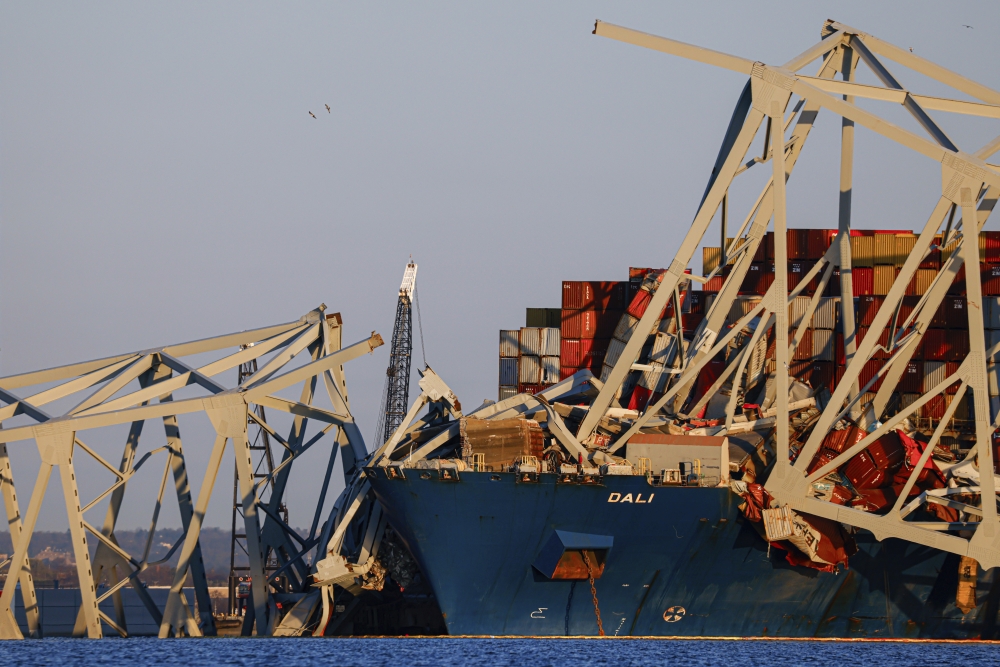The deaths of six immigrant workers in the collapse of Baltimore’s Francis Scott Key Bridge on March 26 sparked the kind of collective empathy that usually follows tragic events. President Joe Biden was among the many who offered his prayers. In news reports, the men have been called “kindhearted,” “humble” and “heroes.”
We should ask ourselves, is it only the tragedy that made them deserving of such labels? The disparaging way immigration is framed in the U.S. any other time makes this outpouring of praise seem like a trope.
Routinely, we hear politicians, business owners and analysts — even the well-meaning ones – say that immigrants do the jobs that Americans don’t want (and for low wages), so we should be more open to embracing them as deserving of a place in our country.
Let me break it to you: That’s no badge of honor.
To frame the conversation about immigrant workers around their sacrifices – a necessity for them – only marginalizes already vulnerable members of our communities.
The topic of immigration remains a top issue. A recent Bloomberg News/Morning Consult poll found that it ranks second only to the economy for voters. As we get closer to Election Day, we shouldn’t be glorifying the fact that immigrants do jobs that no one else wants.
Instead, we should talk more about the lack of safety of those jobs.
The Baltimore tragedy underscored that construction is one of the deadliest industries in the U.S. As the focus turns toward rebuilding the bridge, it’s been reported that Latinos, who make up 31% of construction workers, think the task is too dangerous. Other industries that rely on foreign-born workers are just as hazardous. The Department of Labor reports that employees of poultry and meat processing plants are exposed to diseases that are resistant to antibiotics and have an increased risk of developing lung cancer.
The labor force behind this critical part of our food supply is made up of over 37% immigrant workers, according to an analysis of federal data by the Economic Policy Institute.
But we’d be remiss if we stopped there. U.S.-born workers are also toiling in poultry and meat processing plants – as well as building homes, repairing roofs and refilling potholes on overnight shifts. Our focus should be on finding ways to make every job as safe as it can be for everyone. Right now, all eyes are on Latinos, but this country’s disregard for the welfare of immigrant workers dates back centuries. Think about the Chinese who chiseled and blasted their way across the Sierra Nevada, digging tunnels and laying tracks for less money while working in worse conditions than their White counterparts. Their reward? Decades of restrictive policies that were designed to keep them away.
History shows that, despite the message that these jobs are some sort of down payment to be a part of our nation, somehow immigrants of color are left out. The xenophobic idea of America being only for Americans underlies the “predatory relationship between employer and immigrant employee,” says Bill Barry, the retired director of labor studies at the Community College of Baltimore County. That includes wage theft, most commonly in the form of unpaid overtime. The practice, pervasive nationwide, often goes unreported because immigrants fear unemployment or, if they don’t have legal papers, deportation.
Documented and not, immigrants have, in the words of economist Steven Rattner, been “essential to America’s post-COVID labor market recovery.”
Maynor Yassir Suazo Sandoval, 38, was from Honduras. Miguel Luna came from El Salvador. Alejandro Hernandez Fuentes, 35, and Carlos Hernández, 24, were natives of Mexico. Dorlian Ronial Castillo Cabrera, 26, and Jose Mynor Lopez, 35, were from Guatemala. These six men who died while working on the Francis Scott Key Bridge should be remembered as part of that essential recovery narrative.
Outside of that, they had wives and children. They went to church on Sundays. They planted roots in the neighborhoods where they lived. At least two of them, Sandoval and Luna, volunteered at CASA, a nonprofit that serves and advocates for Latinos.
For 30 years, CASA has screened, trained and connected “good employees with good employers” in Maryland and other states, says Gustavo Torres, its executive director. At its hiring hall in Baltimore, he said, U.S.-born Black workers give their Latin American counterparts tips on how to negotiate pay. Recently, both have united to ask for French classes so that they can talk to francophone migrants from Africa.
“These are the workers who build bridges that unite communities, not the walls that divide us,” Torres said.
There’s no clarity on the immigration status of all six men killed in the bridge collapse, but the tragedy galvanized advocates, business leaders and elected officials to band together and push for the Biden administration to extend temporary protected status to immigrant workers who have lived in the United States for 5 or more years, as was the case with at least three of those who died.
This way, immigrants would at least receive legal permission to work in the US, though it does not provide a direct path to legal residency or citizenship. “It’s an opportunity for the president to recognize the contributions they’re making” and a way to energize young progressive voters, Torres said.
It’s also a gamble, especially in an election year where immigration is a divisive top-of-mind issue, but for a group that’s been helping rebuild this nation, it’s a worthy wager.
Related Stories











Invalid username/password.
Please check your email to confirm and complete your registration.
Use the form below to reset your password. When you’ve submitted your account email, we will send an email with a reset code.